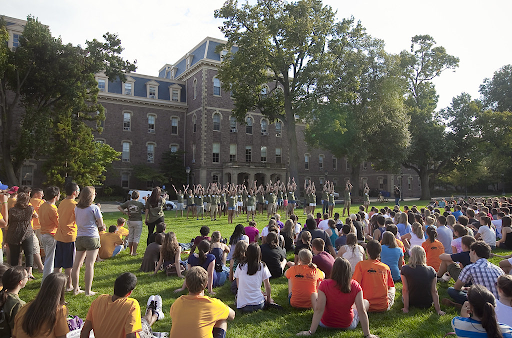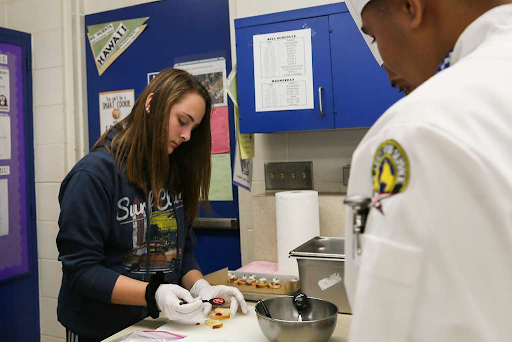As this year’s stressful application cycle comes to a close, many incoming college freshmen’s priorities now include signing up for freshman orientation, looking for a roommate, and buying necessities for their dorm room.
For many students, this is the first time they will live on their own, separated from their familiar routine, where there is often the feeling of a parental “safety net.”
Some view this new independence as exciting.
“I definitely am excited to live independently next year. Being on my own and meeting new people is something I am looking forward to,” says senior Stella Fox, who will be a freshman at the University of Michigan this coming fall.
However, this new experience can catch others off guard, and some students are simply unprepared for the challenges that college freshmen will face.
Chores, an important aspect of independent living, often come as an unwelcome surprise to many freshmen. Doing laundry, cleaning dishes, grocery shopping and other necessary tasks can quickly pile up, leaving students overwhelmed and potentially struggling to balance their newfound responsibilities with academics.
In a survey administered to LFHS upperclassmen, almost a third (32.8%) out of 76 respondents rated their time management capabilities as a three or lower, on a scale of one to five (five being the highest).
25% of survey respondents said that they needed a parent or authority figure to schedule events for them and remind them to complete tasks.
Poor time management skills are often not a major problem in high school. Teachers often remind students of due dates and parents have access to students’ PowerSchool. However, in a college environment, students will be responsible for these duties themselves.
Many activities contribute to a college student’s life, such as classes, physical exercise, fraternity and sorority activities, homework, and much more. With such a multitude of activities to participate in, students often lose motivation to complete their necessary academic work.
According to the Learning at College Strategy Blog, college students may face a lack of motivation due to several factors. Three main reasons are disliking their major/school/program, experiencing mental health struggles, and/or not being integrated with the school’s social scene.
These factors can all harm a student’s ability to acclimate to the college environment and independent lifestyle.

In addition to self-reported subpar time management skills, students who completed the survey also did not rank themselves highly in their ability to complete the chores necessary for living alone.
18% of students said that they were not able to do their laundry unassisted. And 9% of students said they would be unable to cook for themselves and would feel scared to try doing so.
83% of LFHS students surveyed reported that they were not the ones doing chores and cleaning at home. Of those students, 34% said that their family hires an au pair, maid, or other type of cleaning staff.
Coming from such a wealthy area, many students have grown up without being expected to complete chores, which may cause them to have a more challenging time adjusting to college life than those who have been.

While colleges and universities often provide support for incoming freshmen, it is ultimately up to the students to help themselves and develop the skills critical for success.
Incorporating life skills education into the high school curriculum could help make this transition more seamless. For example, adding a home economics or cooking class into the LFHS course catalog.

In the meantime, Outlier says students can prepare themselves for college by creating a budget, turning in housing applications early, familiarizing themselves with the campus, creating a schedule for their activities, and being mindful of their mental health.
The transition from high school to college is a challenging one that can hit many students by surprise. The absence of the familiar guidance and support that was common in high school can leave many students overwhelmed and underprepared for the realities of living alone.
61% of students surveyed stated that they “were” or “sometimes were” nervous to live alone.
As a community, we need to prioritize preparing our students, children, and peers for this transition. With proper support, students can navigate their new environment with confidence and lay the groundwork for success in college.








